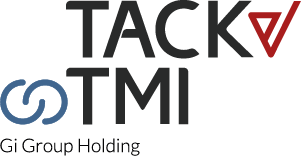From navigating regional regulations and delivering strong shareholder returns to keeping pace with increasingly sophisticated consumer expectations, manufacturers today must operate in a highly competitive and fast-moving global environment. The pressure to deliver greater value at lower cost—without compromising quality—is more intense than ever.
Where once the industry was more straightforward—with fewer product lines, simpler processes, and less demanding customers—it’s now a very different landscape. Modern consumers want better products, faster, and cheaper, creating high demands on manufacturers to be agile both operationally and culturally. Alongside this, digital transformation and the rise of AI are introducing additional pressures, potentially impacting workforce morale as roles evolve or disappear.
To remain competitive and drive efficiencies, manufacturers must take a step back and focus on the bigger picture. A strong culture of leadership, underpinned by a healthy working environment, is crucial to achieving sustainable productivity. People remain the greatest asset in any business, so nurturing workplace culture and employee wellbeing is key to unlocking improved performance.
Exploring Manufacturing Culture and What Motivates Employees
In the 1980s and 90s, the focus in manufacturing was on ’empowering’ workers—encouraging those closest to the action to make decisions. Today, this concept has progressed to ‘autonomy’: equipping individuals with the skills and confidence to make informed choices independently.
Achieving this shift requires a culture that enables people to grow and thrive. Developing critical capabilities at every level of the business helps employees adapt to change, take ownership, and be more agile.
Crucially, identifying the right motivational triggers is essential. Previously, motivation stemmed largely from external factors like salary and working conditions. But in modern manufacturing, intrinsic motivators must be embedded into daily working practices.
Leadership thought leader Daniel Pink outlines four key intrinsic motivators that support a culture of ownership:
- Autonomy – Employees must have both the confidence and competence to do their jobs without being micro-managed. Empowerment drives performance.
- Mastery – It’s not just about technical know-how; interpersonal skills, collaboration, and communication matter just as much.
- Relatedness – Everyone in the organisation must understand their contribution and how it fits into the wider picture. A culture of care and collaboration fuels high performance.
- Purpose – When people see how their work makes a difference, they are more engaged. Metrics like KPIs help reinforce the real-world impact of their efforts.
The Benefits of a Positive Manufacturing Workplace Culture
A healthy workplace culture promotes the behaviours and mindset needed to perform at a consistently high level. It starts with creating a psychologically safe space—where people feel heard and valued, regardless of their role.
Traditionally, many leaders progressed based on technical ability, sometimes resulting in a top-down, micro-managed culture. But this approach can hinder performance. A shift in leadership style, with more focus on empowerment and trust, helps build teams that are confident, capable, and proactive.
The Role of Leadership in Embedding Cultural Change
Cultural transformation must start at the top. Values, behaviours, and leadership styles need to align from senior leadership down to front-line managers.
In manufacturing, where much of the day is spent solving operational problems, there’s often little time to talk about culture. Yet, shared understanding is critical. That’s why senior leaders must create systems that support both operational efficiency and cultural alignment.
If leadership behaviours don’t reflect the desired culture, then those behaviours must change—because the tone set by leaders inevitably shapes the wider workplace.
Building Confidence with Targeted Leadership Development
Acknowledging the need for cultural change is just the beginning. Driving lasting change takes a well-designed leadership development programme. When the right leadership behaviours are embedded from the outset, teams are set up to succeed.
This reduces the need for reactive training to address issues like safety or quality. A strong, consistent culture reinforces these values every day. When people feel genuine ownership, they don’t just meet expectations—they exceed them. That’s what drives operational excellence in manufacturing today.
Discover how Barr Soft Drinks worked with Tack TMI to establish a high-impact leadership culture across its operations.
Over 130 team members enhanced their leadership skills through our tailored development programme.
Explore the full case study here.
Expert Insight: Chris MacCann
This article was developed in partnership with Chris MacCann, a global consultant with deep expertise in manufacturing. Chris has supported clients in industries such as electronics, defence, food & beverage, pharmaceuticals, and engineering—designing and delivering leadership and culture programmes that drive real operational impact.
His focus areas include safety culture, high-performance environments, and sustainable business transformation. Chris’s work is grounded in hands-on delivery and long-term partnerships that create genuine value through proven, practical methods.
